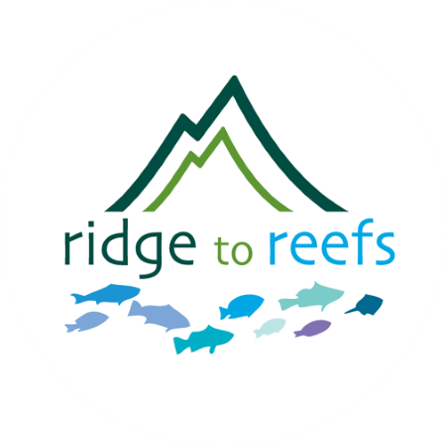Maui Diaries - Day 5: Regenerative Agriculture
Ridge to Reefs is a strong proponent of Regenerative Agriculture: a method of farming that “among other benefits, reverse climate change by rebuilding soil organic matter and restoring degraded soil biodiversity.” Unfortunately, conventional farming practices used by many of the main producers are ultimately damaging to the environment, stripping lands of their organic matter content, exacerbating erosion and requiring large quantities of fertilizer inputs due to the lack of nutrient content in the now depleted soil. Larger farms with high demand often resort to poor practices such as tilling or using pesticides, which in the short term may result in higher yields, but in the long term destroy the land’s ability to produce nutrient-rich food, while also contributing to water pollution and human health issues. There is a better way, and it incorporates traditional, pesticide-free techniques with low-impact technology to produce high-quality food without compromising soil and human health.
Organic farming and supporting small to medium-sized local farms is becoming more popular as people become more familiar with the environmental and health consequences of conventional farming. Regenerative Farming takes this a step further, by incorporating techniques such as mycorrhizal (fungi) inoculation, no-till farming, and cover cropping to rebuild healthy soil. When high in organic matter, soil will hold on to carbon, rather than release it; resulting in a net positive impact on climate change.
An experimental taro patch using no added fertilizers and mulch as natural weed suppression.
At the La Kahea Community Education Farm in Waikapu, Maui, Regenerative Agriculture is the top priority. Winsome, Jakke and Whitney are pioneering best practices for taro production and other crops, while hosting educational workshops for the local community to learn skills like natural building (e.g. earthship construction and clay structures) and organic farming. They have found a way to get mulch practically for free, and spread it on their plots thick, eliminating the need for plastic weed suppression, and increasing the water holding capacity of their soil. As a result, they use half the amount of water and build soil far faster than conventional methods. They also brew compost tea and incorporate biochar into their planting. In addition, La Kahea is diversifying their revenue stream to include workshops, value-added products (Maui Chews, a delicious sugar-free chewy banana chip), natural fertilizers, and more. They learned from COVID-19 that having multiple products and services is important to maintain resilience against the many unknowns inherent in farming.
Their farmland is shared with several other farmers and is situated within a scenic landscape; mountains climb high behind and before us, and dust devils whip up as the winds race down through the valley across the landscape. You can see for miles in every direction, the ocean visible and shining under the noonday sun. We met in their earthship outdoor kitchen area, and took a tour of their land, seeing a deep litter piggery in action and meeting another farmer, Bobby, who stopped using plastic on his land after decades of using plastic mulching, simply because he was inspired by the La Kahea team’s model. To quote Jakke, you should “never tell another farmer how to farm.” La Kahea truly leads by example, rather than prescribing solutions, and their work is moving the island one step closer to a more regenerative model.
Discussing project goals in La Kahea’s outdoor earthship kitchen, built with help from the local community.
Ridge to Reefs will be partnering with La Kahea on an NRCS Conservation Collaboration grant to produce a Long-Range Plan to support conservation practices on small- and medium-sized farms of Maui. We are looking forward to learning more about the unique challenges farmers on Maui face through a Needs Assessment and farmer surveys. Through this research, we will strategize a path forward that ensures all farmers are receiving the support they need to protect their soil health and downstream waters while thriving economically.




